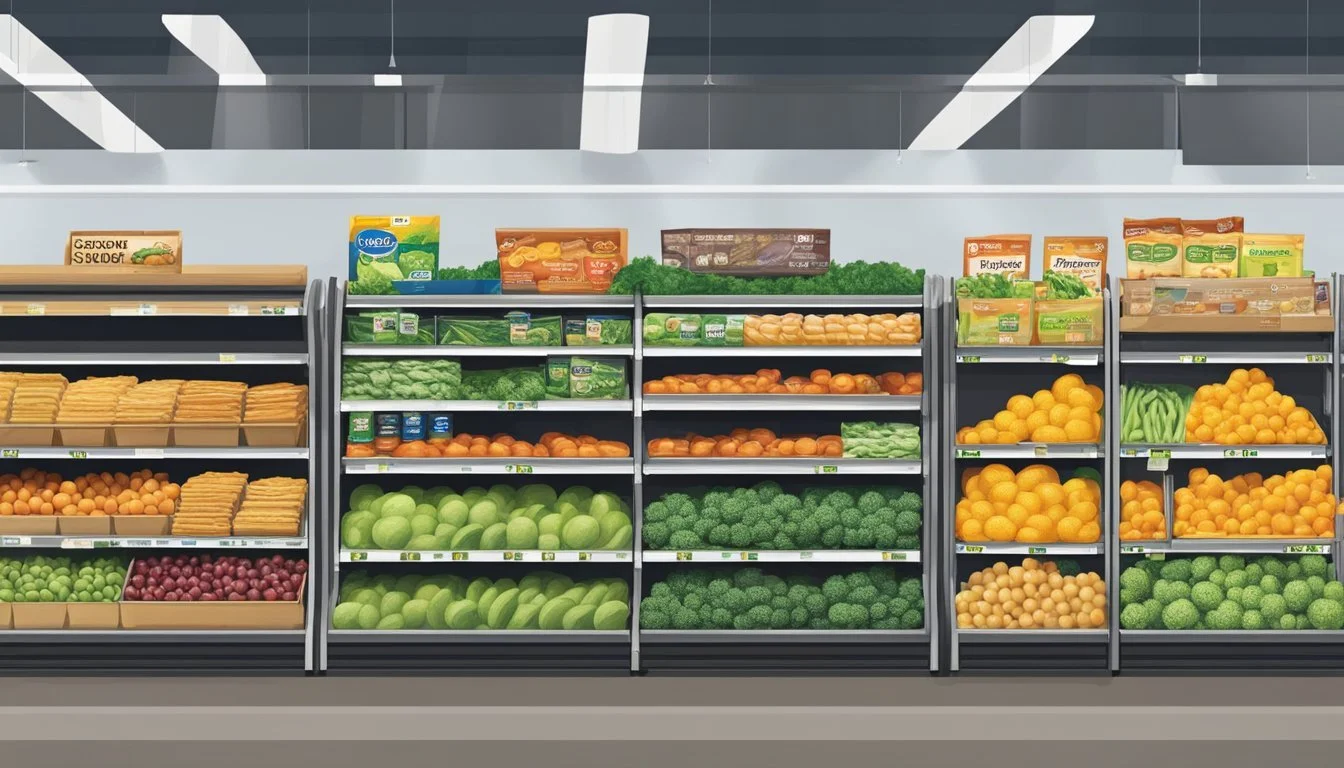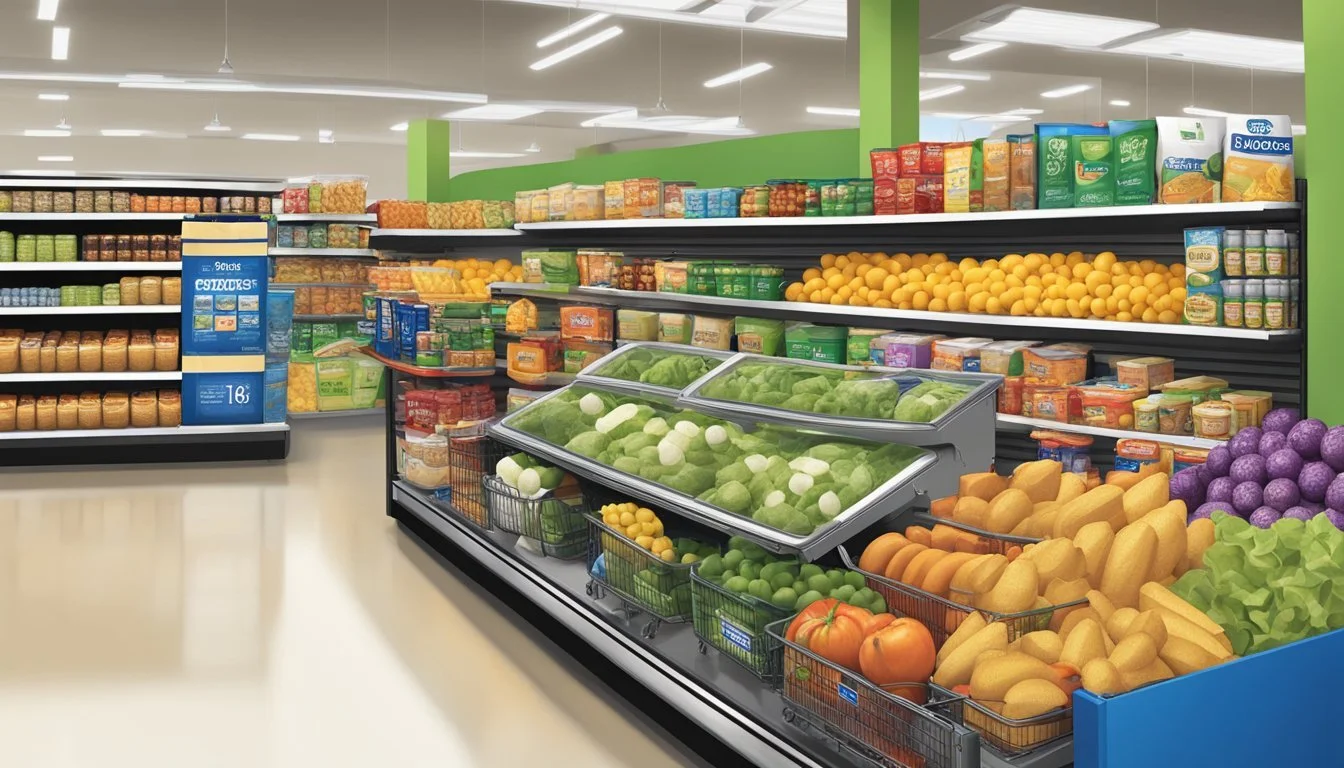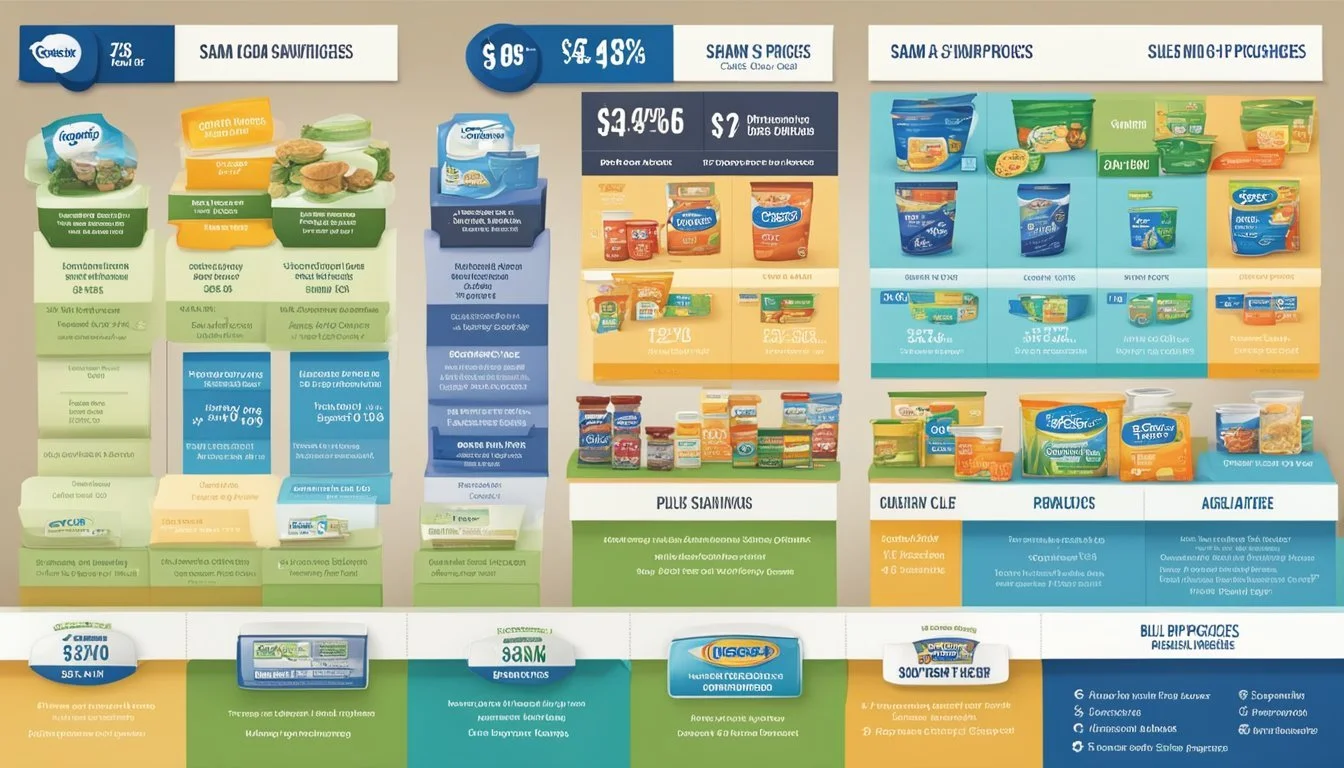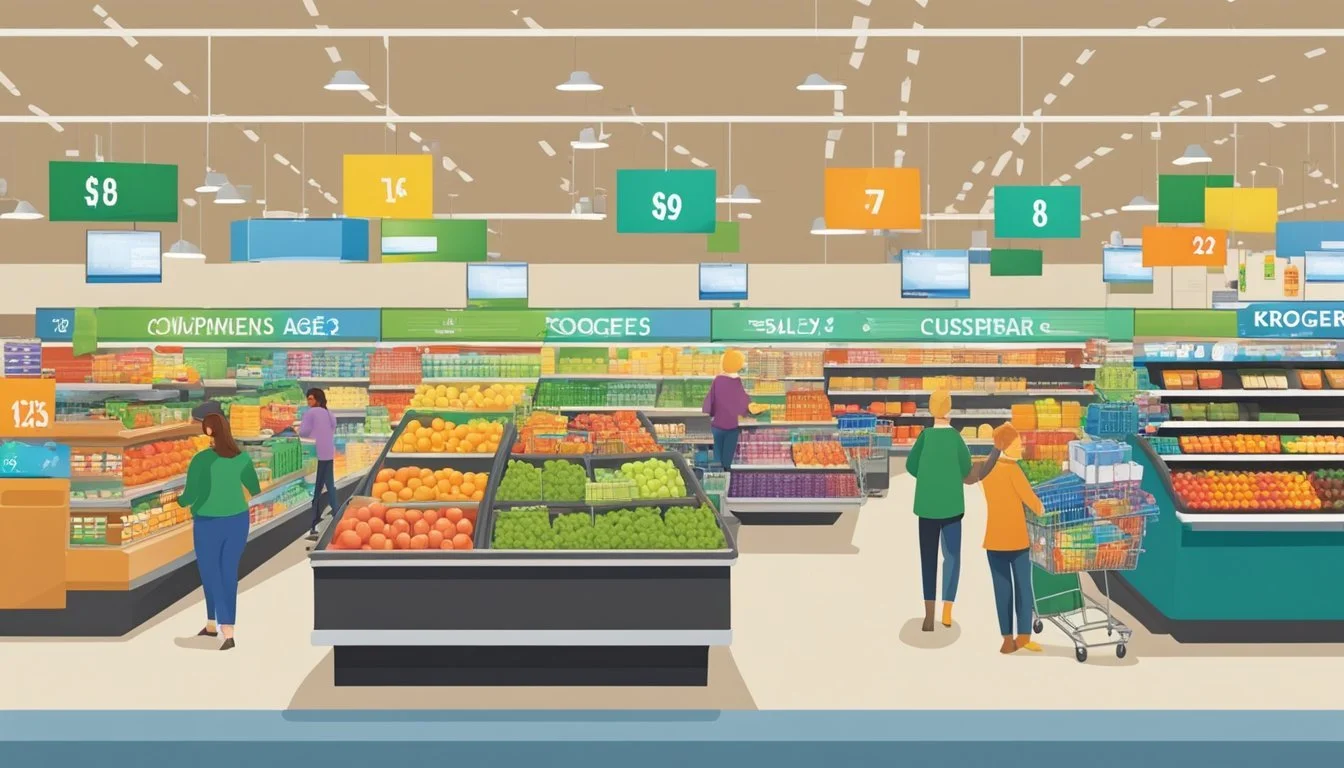Is Kroger Cheaper Than Sam's Club?
Comparing Grocery Prices
Part of Our Grocery Store Guide with Details on Kroger Prices and Sam's Club Prices
When it comes to grocery shopping, consumers often weigh the value they receive against the prices they pay. Two prominent players in the grocery industry are Kroger, known as the largest supermarket chain in the United States, and Sam's Club, a membership-only warehouse club. Shoppers frequently question which store offers the better deal. Kroger provides a wide range of branded and private label products, along with frequent sales and digital coupons which can significantly reduce the cost of grocery items.
On the other hand, Sam's Club, operating under a membership model, offers bulk products often at lower unit prices, which may be ideal for large families or those looking to stock up on goods. While Aldi has been recognized for its low prices, consumers are interested in how Kroger fares against a warehouse giant like Sam's Club, where the value is sometimes found in larger quantities rather than weekly specials.
Determining which store is cheaper can depend on a variety of factors, including shopping habits, the willingness to buy in bulk, access to coupons, and the types of products purchased. Additionally, the geographic location can influence pricing and the range of products offered by both Kroger and Sam's Club, adding another layer of complexity to the comparison. It's this intricate balance of price, quantity, and shopping preference that shoppers must consider when determining which retailer provides the greater value for their household budgets.
Understanding Warehouse Clubs and Supermarkets
Warehouse clubs like Sam's Club and Costco are membership-based retailers that offer a wide variety of products at lower prices due to their bulk selling model and reduced operational costs. These clubs typically charge an annual membership fee—for instance, Sam's Club membership costs can range from a basic Club membership to a Plus membership, offering additional benefits such as free shipping and earlier shopping hours.
Supermarkets such as Kroger and Aldi, on the other hand, are traditional grocery retailers. They do not require a membership fee and operate as national chains catering to everyday consumer needs. These supermarkets offer a wide selection of items, from fresh produce to household goods, often featuring weekly deals and a loyalty card system to encourage repeat business.
Warehouse Club vs. Supermarket:
Bulk Purchases: Warehouse clubs often sell in larger quantities.
Membership: Clubs charge fees, supermarkets do not.
Savings: Clubs might offer lower prices due to scale.
Variety: Supermarkets generally offer a wider range of brands.
Warehouse clubs may provide significant cost savings for consumers who buy in bulk and are willing to pay an upfront membership fee. Supermarkets offer more frequent shopping trips with no membership requirement, appealing to customers who prefer buying in smaller quantities or seeking specific brands not carried by warehouse clubs.
Price Comparison Strategies
When analyzing whether Kroger is cheaper than Sam's Club, it is essential to consider unit prices, seasonal sales, and membership benefits. These factors contribute significantly to overall savings on grocery items.
Unit Price Analysis
Consumers should compare prices based on unit price—the cost per ounce or another measurement. This is particularly crucial for staples and bulk purchases. Sam's Club typically offers lower unit prices due to selling in larger quantities, while Kroger might provide more options for smaller quantities, which could be beneficial for those not interested in bulk buying.
Sam's Club might list a 10-pound bag of rice at a lower price per ounce compared to Kroger's 1-pound bag.
Buying larger quantities at Sam's Club influences savings, but shoppers must be willing to purchase more at once.
Seasonal Sales and Discounts
Understanding seasonal sales patterns is integral for finding the cheapest price. Kroger often runs sales on fresh produce and grocery items, which can lead to immediate savings.
Look for weekly flyers from Kroger to find the best sales and discounts.
Sam's Club may not have as many sales, but their prices may already be lower, so it's important to compare the discount price at Kroger with the everyday price at Sam's Club.
Membership Benefits and Rewards
Both Sam's Club and Kroger offer membership or loyalty programs that provide additional savings. However, the benefits vary:
A Sam's Club membership comes with qualifying purchases that could lead to cash back rewards or discounted gift cards.
Kroger shoppers can accumulate points to avail coupons or fuel discounts, potentially providing more immediate savings.
Prospective buyers should weigh the membership cost against the long-term savings, considering that Sam's Club membership offers free shipping on many items, which could influence overall savings for frequent online shoppers.
Average Cost Analysis of Common Items
When comparing Kroger to Sam's Club, a meticulous analysis on everyday items showcases which retailer offers the greater value. It is crucial to scrutinize the unit price of items rather than just the total cost for a transparent comparison.
Food Essentials
Food essentials like bread, eggs, and milk can vary in price between Kroger and Sam's Club. Kroger's store brand items often afford customers with competitive prices, especially when leveraging their digital and paper coupons. Sam's Club, on the other hand, may offer lower unit prices on bulk purchases, particularly advantageous for large families or those looking to stock up.
Bread: The staple's price fluctuates less, with both stores providing options under $2 for their store brands.
Eggs: A dozen eggs are generally less expensive at Sam's Club due to bulk packaging.
Milk: Gallon prices are similar, with Kroger occasionally offering lower rates through weekly deals.
Household Necessities
Household products such as toilet paper and cleaning supplies are also items where costs can be easily compared. Customers might find that Sam's Club offers more in bulk, typically lowering the cost per unit for these products. Kroger may not feature the same bulk deals but often has sales and coupons that can bridge the price gap.
Toilet Paper: Sam's Club may have better bulk deals, but Kroger can compete with sales and coupons.
Cleaning Supplies: Generic brands at Kroger are usually competitively priced, particularly when on sale, while Sam's Club leads in bulk pricing.
Specialized Categories
For more focused categories such as prescriptions and toiletries or even office supplies, the analysis becomes trickier. Each retailer has its strengths; Kroger's pharmacy might offer various generic medications at lower prices, while Sam's Club can provide substantial savings on name brands in bulk quantities.
Prescriptions: Kroger's pharmacy often has lower prices for generic medications, but it's essential to check as prices can vary widely.
Toiletries: Bulk buys at Sam's Club offer savings, but Kroger's clearance sections and reward points can lower individual item prices.
Membership and Access Considerations
When comparing Kroger and Sam's Club, potential shoppers should first consider the membership model that Sam's Club operates under. Sam's Club is a warehouse club that requires a membership fee to access their discounted bulk products. In contrast, Kroger operates as a traditional supermarket, allowing shoppers to purchase groceries and goods without any membership requirement.
Sam's Club Membership Fees:
Annual membership: $45 (Club level)
Plus membership: $100 (additional benefits)
No fee; optional loyalty card for additional savings
Access to Locations: Warehouse clubs like Sam's Club can be less numerous than traditional grocery stores. Thus, proximity to a Sam's Club compared to Kroger could influence shopping preferences. Shoppers must also consider the access to the range of products offered. While Sam's Club may offer better deals on bulk items, Kroger might have a wider selection of individual consumer goods.
Member-Only Benefits at Warehouse Clubs:
Typically lower prices on bulk items
Exclusive discounts on products and services, including fuel
Potential savings on gas, which can add up considerably over time
In conclusion, customers should weigh the membership costs against potential savings and their own shopping habits before deciding where to shop. Both retailers provide distinct advantages, and the choice may come down to individual needs and access to store locations.
Budgeting for Groceries
When it comes to grocery shopping, consumers should approach budgeting with strategic planning to ensure they get the most value for their dollar. The first step in budgeting effectively is to create a detailed shopping list based on weekly meal planning. This not only prevents impulse buys but also ensures that shoppers stick to their financial goals.
Comparison shopping is crucial for savvy shoppers. Prices can vary significantly between stores, and retailers like Kroger and Sam's Club have distinct pricing models. Kroger operates as a traditional supermarket offering frequent sales and loyalty discounts, while Sam’s Club, a warehouse store, typically offers bulk items at a lower unit cost, benefiting those with ample storage space.
To manage a grocery budget efficiently, individuals should:
Track spending: Keep receipts and note prices to understand where money goes each month.
Evaluate needs vs. wants: Prioritize essential items and be willing to compromise on brand names for basics.
Use tools and apps: Many grocery stores have apps that highlight sales, offer digital coupons, and track loyalty points, which can help in saving money.
Understanding the fluctuations in pricing and inventory can help consumers decide when to buy in bulk or take advantage of sales, adjusting their budget accordingly. Being flexible with brands and product choices can also lead to significant savings, especially if one opts for store-brand items which are often cheaper than their branded counterparts.
Monitoring and adjusting the budget regularly is key to staying within financial boundaries while still purchasing necessary groceries.
Analyzing Bulk Purchase Benefits
When comparing Kroger to Sam's Club, one must consider the impact of bulk purchasing on consumer savings. Sam's Club, as a warehouse club, specializes in selling items in larger quantities, often leading to a lower cost per unit. Shoppers tend to find notable price reductions on items such as cheese, rotisserie chickens, deli meat, and other staples when bought in bulk.
Bulk purchases at warehouse clubs like Sam's Club and their competitors, including Costco, can lead to significant savings. These savings arise because of the retailers' business models, which focus on minimalistic presentation and high-volume sales. It's important, however, to assess the utility of purchasing in bulk against individual needs to avoid unnecessary spending on items that may go to waste.
Here is a quick comparison of potential savings:
Cheese: Bulk pricing can result in cost savings over time due to a lower price per ounce.
Coffee: Buying in larger quantities often results in a lower cost per pound, assuming coffee is consumed before losing freshness.
Dried Fruit: Larger packages typically offer a more favorable cost per ounce.
It's crucial to remember that not every product at a warehouse club will offer the best value. Buyers should remain vigilant and compare per-unit prices with retailers like Kroger, which might offer competitive prices, especially when sales or membership discounts are applied. The true benefit of bulk purchasing hinges on the buyer's ability to consume the products before they expire and their capacity to store bulk quantities.
While the bulk purchase benefits of warehouse clubs can be substantial, they must be weighed against individual shopping habits and needs to ensure they align with actual consumer savings.
Brand Comparison and Selection
When comparing Kroger to Sam's Club, one must consider the variety and cost-efficiency of store versus national brands. Each retailer offers its approach to balancing selection with price.
Store vs. National Brands
Kroger has its line of store brands that typically provide a less expensive alternative to national brands. Consumers can find a wide range of Kroger brand products, including organic and specialty items. These store brands are designed to compete with national chain offerings in both price and quality.
On the other hand, Sam's Club, a warehouse club owned by Walmart Inc., offers its members a selection of national brands as well as its exclusive brand, Member's Mark. While its selection of items may be less diverse than Kroger's, Sam's Club focuses on bulk purchases and tends to offer larger-sized products, which often results in cost savings when compared to purchasing smaller quantities.
For consumers seeking to compare Sam's Club’s Member's Mark with Kroger’s store brands, it's important to consider the price per unit or per serving, as bulk packaging at Sam's Club can translate into savings over time, especially for households with high consumption rates.
However, it is to be noted that while club stores like Sam's Club may provide the benefit of lower prices on their store-brand items, such as Kirkland, which is Costco's equivalent to Member’s Mark, shoppers may face a trade-off with membership fees that are not required at national chains like Kroger.
The availability of generic versions of popular items is another factor to consider. Both Kroger and Sam's Club offer generic options at competitive prices, appealing to budget-conscious shoppers who are willing to forgo brand names in favor of cost savings.
Ultimately, the choice between Kroger and Sam's Club may come down to the individual shopper's priorities, whether it’s the immediate cost savings on national brands, the long-term benefits of bulk buying, or the preference for a wider selection that includes private labels and generics.
Convenience and Shopping Experience
When contrasting the shopping experience of Kroger and Sam's Club, consumers need to consider several factors that contribute to convenience. Kroger can be found in numerous locations, often making it easily accessible for quick shopping trips. Sam's Club typically requires a membership for shopping, which might be an inconvenience for those seeking a one-off visit.
Kroger stores offer a variety of digital coupons and weekly deals through their mobile app. Shoppers can clip coupons electronically, providing a seamless and money-saving experience. The coupons automatically apply at checkout when a customer scans their membership card. This convenience of saving is not just an afterthought—it's integrated into the shopping process.
In the case of Sam's Club, the warehouse layout is designed for buying in bulk. This may lead to an extensive search for specific products due to the large size and volume of goods. While this could be slightly inconvenient for some, the shopping experience at Sam's Club is tailored to individuals looking to stock up on items, thereby making large-scale shopping trips less frequent.
Key Points:
Accessibility: Kroger stores are more widespread and therefore potentially closer to consumers.
Digital Savings: Kroger emphasizes digital coupons and savings within its app.
Membership: Sam's Club requires a membership, which may not suit infrequent shoppers.
Warehouse Shopping: Sam's Club is ideal for bulk purchases, though it might require more extensive searching due to the store layout.
Each store offers a distinct shopping experience with a focus on different aspects of convenience. Shoppers should choose based on their specific needs and shopping preferences.
Impact of Market Conditions
Market conditions play a crucial role in determining product pricing between retailers such as Kroger and Sam's Club. Inflation inherently reduces the purchasing power of consumers, prompting retailers to adjust their prices. This economic phenomenon elevates everyday prices across the board, impacting both Kroger and Sam's Club.
The influence of gas prices cannot be overstated. As gas prices fluctuate, the cost of transportation for goods affects retail prices. Texas, being a significant logistical hub and producer of petroleum, may witness these effects more directly. The ripple effects of gas price changes are felt at both national chains, as they strive to manage operational costs while maintaining competitive pricing.
Here's a brief representation of how everyday prices are affected:
Essential commodities: Retailers often react to inflation and gas prices by increasing the prices of everyday items.
Supply chain dynamics: Sam's Club and Kroger might experience distinct supply chain efficiencies, contributing to their pricing structures.
Lastly, as a national chain, Kroger faces competition from various market players, which can compel them to keep prices in check to remain competitive. Sam's Club, operating as a warehouse club, offers bulk purchasing options that might provide cost savings in certain categories.
Factor Kroger Sam's Club Inflation Adjust prices Adjust prices Gas Prices Costlier transportation Costlier transportation Texas Market Competitive pricing Bulk savings








